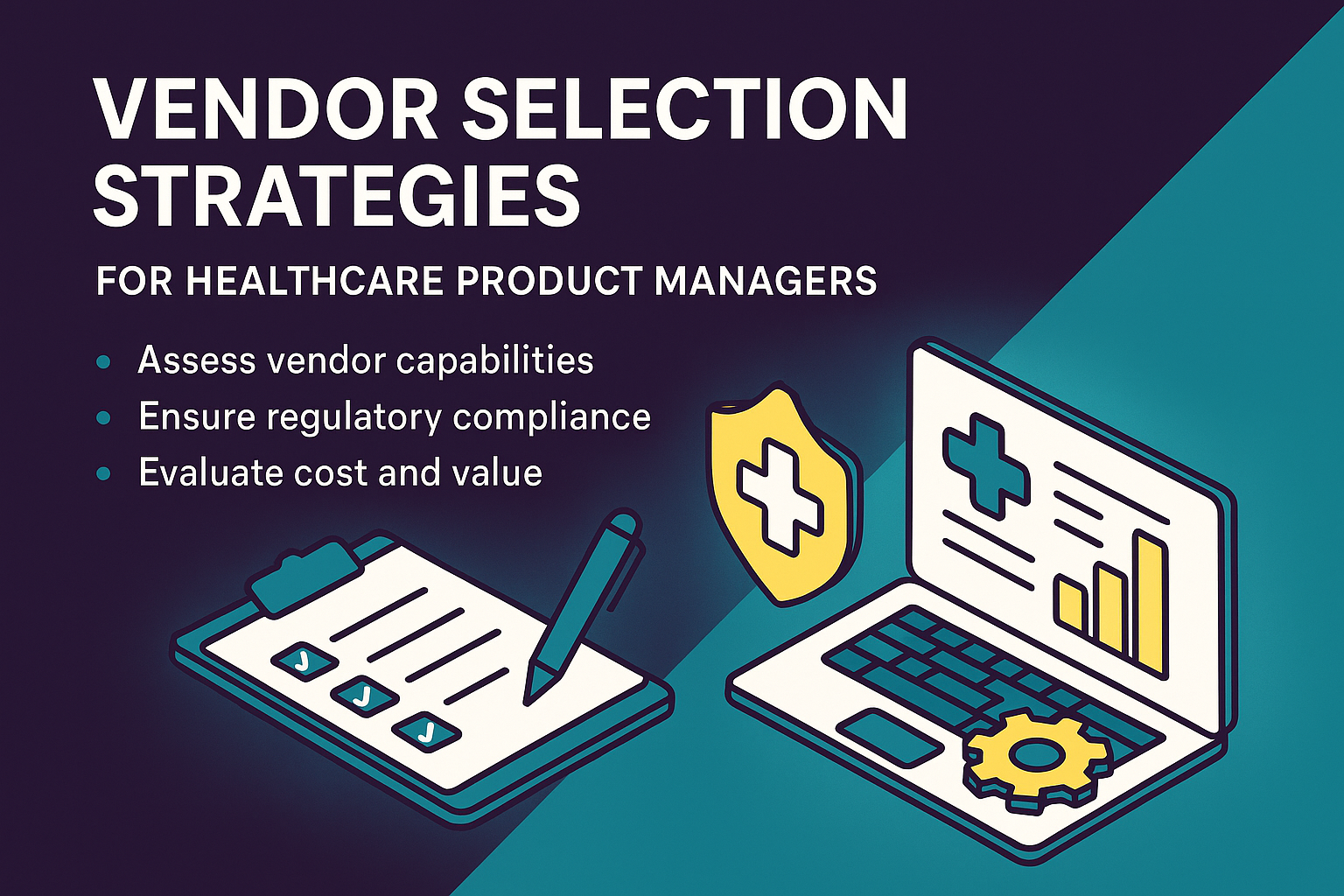Schedule a Demo
Healthcare product managers face a unique challenge when it comes to selecting vendors. The sector is highly regulated, which means that compliance and security are non-negotiable. I've often worked with product managers who have to navigate through a maze of certifications and standards, ensuring that any chosen vendor meets the stringent requirements of HIPAA, GDPR, and other relevant regulations. This necessitates a deep understanding of the vendor landscape, which includes not just the products and services offered, but also the vendor's track record in compliance and security.
Technology plays a pivotal role in how product managers search for vendors. From my experience, many product managers utilize advanced search tools and databases like Gartner's Magic Quadrant or KLAS Research to identify potential vendors. These tools provide insights into the performance and capabilities of various vendors, enabling product managers to make informed decisions. Additionally, platforms like LinkedIn can be invaluable for networking and getting direct feedback from peers about their experiences with specific vendors.
Vendor demonstrations are a crucial step in the selection process. I've seen firsthand how a well-executed demo can reveal the true capabilities of a product and the company behind it. Product managers should insist on seeing a demo that is tailored to their specific needs in the healthcare sector. This not only helps in understanding the product's fit but also in assessing the vendor's willingness to customize solutions to meet unique healthcare challenges.
When selecting a vendor, it's critical to evaluate their stability and support systems. In my consultations with healthcare product managers, I've emphasized the importance of looking into the financial health of a vendor, their market position, and their customer support infrastructure. A vendor might offer an excellent product, but if they're struggling financially or lack robust support, they could become a liability rather than an asset.
Peer reviews and case studies offer valuable insights into how a vendor performs in real-world scenarios. I've advised product managers to seek out detailed case studies from vendors, especially those that align closely with their own use cases. Additionally, peer reviews on platforms like G2 or Capterra can provide unfiltered feedback from other healthcare professionals, which can be more telling than the vendor's own marketing materials.
Negotiating contracts with healthcare vendors requires a keen understanding of the sector's unique needs. From my experience, product managers should focus on clauses that address data security, compliance, and scalability. It's also important to negotiate terms that allow for flexibility, as healthcare needs can change rapidly. Ensuring that the contract includes provisions for regular reviews and adjustments can safeguard the product manager's interests over the long term.
One of the final hurdles in vendor selection is ensuring the chosen solution can integrate seamlessly with existing systems. I've seen many projects derail because the new vendor's product couldn't effectively interface with the current infrastructure. Product managers must verify the vendor's compatibility with their tech stack, including EHR systems, data analytics tools, and other critical software. This step often involves detailed technical discussions and sometimes even proof-of-concept projects to test the integration.
Selecting a vendor is not the end of the journey; it's the beginning of an ongoing relationship. I've found that continuous monitoring and proactive relationship management are essential for long-term success. This involves regular check-ins, performance reviews, and open communication channels to ensure the vendor continues to meet the evolving needs of the healthcare organization. Product managers should establish KPIs and SLAs to measure the vendor's performance and hold them accountable.
Balancing cost and quality is a delicate act for healthcare product managers. In my discussions with clients, I've stressed that the cheapest option is rarely the best, especially in a field where quality can directly impact patient care. However, it's equally important not to overpay for features that may not be necessary. Product managers need to conduct thorough cost-benefit analyses, considering not just the initial outlay but also long-term costs such as maintenance, upgrades, and potential downtime.
Industry conferences and events can be a goldmine for healthcare product managers searching for vendors. I've attended numerous events where I've seen product managers connect with potential vendors, gain insights into the latest trends, and even negotiate deals on the spot. These gatherings provide a unique opportunity to see products in action, meet with vendor representatives face-to-face, and gather competitive intelligence that can inform the vendor selection process.
Vendor selection can significantly impact the innovation capabilities of a healthcare organization. In my work, I've observed that choosing the right vendor can open up new avenues for innovation, whether through advanced technology, collaborative partnerships, or access to cutting-edge research. Product managers should consider how a vendor's offerings can support and enhance their organization's innovation strategy, ensuring they stay ahead in a competitive landscape.
Ethical considerations are increasingly important in the healthcare sector. I've worked with product managers who prioritize vendors with strong ethical standards, particularly in areas like data privacy and patient care. Ensuring that a vendor aligns with the organization's ethical values can enhance trust and reputation, which are crucial in healthcare. Product managers should conduct thorough due diligence to assess a vendor's ethical track record and commitment to social responsibility.
Looking ahead, the future of vendor selection in healthcare is likely to be influenced by emerging technologies like AI and blockchain. In my view, these technologies will not only streamline the vendor selection process but also enhance the security and efficiency of healthcare operations. Product managers should stay informed about these trends and consider how they might impact their vendor selection strategies in the coming years.
Selecting the right vendor is a complex but critical task for healthcare product managers. It requires a blend of strategic foresight, technical knowledge, and a deep understanding of the healthcare landscape. By following the strategies outlined above, product managers can navigate the vendor selection process with confidence, ensuring they choose partners that will enhance their organization's capabilities and support their mission of delivering high-quality healthcare.
